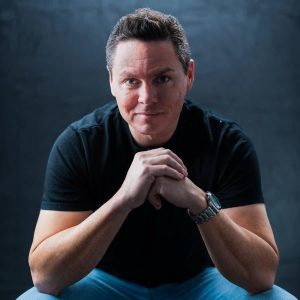Fear is a universal human experience, an emotion that is as much a part of our lives as joy, sadness, or anger. It’s a primal instinct that has been hardwired into our brains to protect us from potential threats and dangers. However, fear can also be a barrier, a wall that prevents us from reaching our full potential and living our lives to the fullest. This article delves into the complex relationship between fear and ego, exploring how our fears often reveal the presence and influence of our ego.
Table of Contents
ToggleDefining fear and ego
To understand the relationship between fear and ego, we first need to define these two concepts. Fear is an emotional response to perceived threats. It’s a survival mechanism that alerts us to danger and prepares our bodies to either fight or flee. On the other hand, ego is our sense of self; it’s the part of our identity that we consider our “self.” The ego is responsible for our feelings of self-worth and self-importance.
View this post on Instagram
A post shared by Keith Crossley – Business Coach and Author of Immune to Suffering
The protective role of the ego
The ego’s primary job is to protect us from mental and emotional pain. It creates a protective barrier between us and the world around us. This barrier is often manifested as fear. The ego uses fear as a tool to protect us from potential physical and emotional harm.
When we are afraid, we are less likely to take risks or put ourselves in situations that could potentially cause us harm. This is the ego’s way of protecting us. However, this protection often comes at a cost. The fear that the ego creates can prevent us from pursuing our dreams, taking chances, and living our lives to the fullest.
Fear as a mirror to our ego
Our fears often reveal our egos. When we are afraid, it’s usually because our ego is trying to protect us. The fear manifests the ego’s desire to keep us safe and secure. However, this fear can also reflect our ego’s insecurities and vulnerabilities.
For example, if we are afraid of failure, it may be because our ego is scared of the potential damage to our self-worth and self-esteem that failure could cause. If we fear rejection, it may be because our ego is afraid of the potential harm to our sense of belonging and acceptance that rejection could cause.
The cyclical nature of fear and ego
There is a cyclical relationship between fear and ego. The ego creates fear to protect us, and then we respond to this fear by reinforcing our ego. This creates a cycle of fear and ego reinforcement that can be difficult to break.
For example, if we are afraid of failure, we may avoid taking risks or pursuing our dreams. This avoidance reinforces our ego’s belief that we must be protected from failure. This, in turn, leads to more fear, and the cycle continues.
Breaking free from the fear-ego cycle
Breaking the fear-ego cycle requires self-awareness and courage. We need to recognize when our fears are a manifestation of our ego and challenge these fears. This involves stepping out of our comfort zones, taking risks, and facing our fears head-on.
By confronting our fears, we can break down the protective barrier our ego has created. This can lead to personal growth, increased self-confidence, and greater freedom and fulfillment.
Wrapping up
Fear and ego are intricately linked. Our fears often reveal our ego, which frequently creates our worries. While this relationship can be a source of protection, it can also be a source of limitation. By understanding the relationship between fear and ego, we can begin to challenge our fears, break the fear-ego cycle, and live our lives with greater courage and freedom.
Frequently Asked Questions
Q. What are fear and ego?
Fear is an emotional response to perceived threats, a survival mechanism that alerts us to danger. Ego, on the other hand, is our sense of self, responsible for our feelings of self-worth and self-importance.
Q. How does the ego protect us?
The ego protects us from mental and emotional pain by creating a protective barrier between us and the world. This barrier is often manifested as fear, used as a tool to keep us safe from potential harm.
Q. How does fear reveal our ego?
Our fears often reveal our ego. When we are afraid, it’s often because our ego is trying to protect us. However, this fear can also be a reflection of our ego’s insecurities and vulnerabilities.
Q. What is the cyclical nature of fear and ego?
The ego creates fear to protect us, and then we respond to this fear by reinforcing our ego. This creates a cycle of fear and ego reinforcement that can be difficult to break.
Q. How can we break free from the fear-ego cycle?
Breaking the fear-ego cycle requires self-awareness and courage. We need to recognize when our fears are a manifestation of our ego and challenge these fears. This involves stepping out of our comfort zones, taking risks, and facing our fears head-on.
Q. What is the relationship between fear and ego?
Fear and ego are intricately linked. Our fears often reveal our ego, and our ego often creates our fears. Understanding this relationship can help us challenge our fears, break the fear-ego cycle, and live our lives with greater courage and freedom.
















